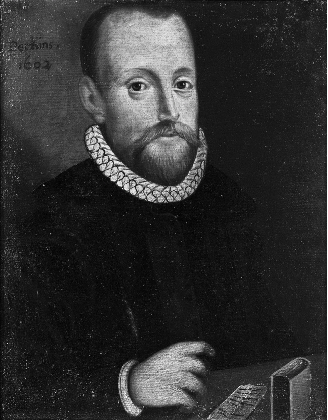William Perkins’s Doctrines Of Faith And Assurance Through The Lens Of Early Modern Faculty Psychology -- By: Matthew N. Payne
Journal: Westminster Theological Journal
Volume: WTJ 83:2 (Fall 2021)
Article: William Perkins’s Doctrines Of Faith And Assurance Through The Lens Of Early Modern Faculty Psychology
Author: Matthew N. Payne
WTJ 83:2 (Fall 2021) p. 317
William Perkins’s Doctrines Of Faith And Assurance Through The Lens Of Early Modern Faculty Psychology
Matthew N. Payne is a PhD candidate at the University of Sydney in Sydney, Australia. His research focuses on the life and thought of William Perkins.

* Oil on canvas, British School, 1602. Public domain.
William Perkins was a highly influential English Reformed theologian of the late Elizabethan era. His doctrines of faith and assurance have been variously interpreted by scholars, with some concluding that Perkins’s views contain serious contradictions. This article argues that Perkins consistently taught the same coherent doctrine of faith and assurance throughout his career. It seeks to demonstrate this coherence by focusing on Perkins’s use of early-modern psychological categories (mind, will, affections, and heart). Perkins taught that faith and assurance are organically related, as a seed to a tree. This article argues that Perkins located the “mustard-seed” of regeneration in the heart which gradually extended its reach through the faculties of the mind, affections, and will, thus producing faith and renewing human spiritual agency to “apprehend” and “apply” Christ. This conception provides the underlying rationale for Perkins’s categories of “least faith,” “great faith” (assurance), and “temporary faith,” and provides the framework within which the voluntaristic character of his pastoral exhortations ought to be interpreted. The coherence of Perkins’s doctrine is best evaluated not according to the concerns and interpretive categories of contemporary theologians, but in relation to the conceptual tools of Perkins’s own intellectual context. Therefore the article concludes by discussing the coherence of Perkins’s doctrine in relation to Aristotelian philosophical concepts.
The life of William Perkins roughly coincides with the reign of Elizabeth I. He was born in 1558, the same year Elizabeth succeeded Mary, and died in 1602, less than six months before Elizabeth herself died in 1603. In 1577 William’s parents enrolled him at Christ’s College, Cambridge, where he was soon converted and found fellowship with various “puritans” who longed to see further Reformation in England.1 Perkins obtained a BA
WTJ 83:2 (Fall 2021) p. 318
in 1581 and an MA in 1584, at which time he was also elected to a fellowship at Christ’s College. He rose to prominence as a theological author from 1588 and released a steady stream of bestselling theological treatises and pamphlets through the 1590s. In 1594 Perkins resi...
Click here to subscribe
